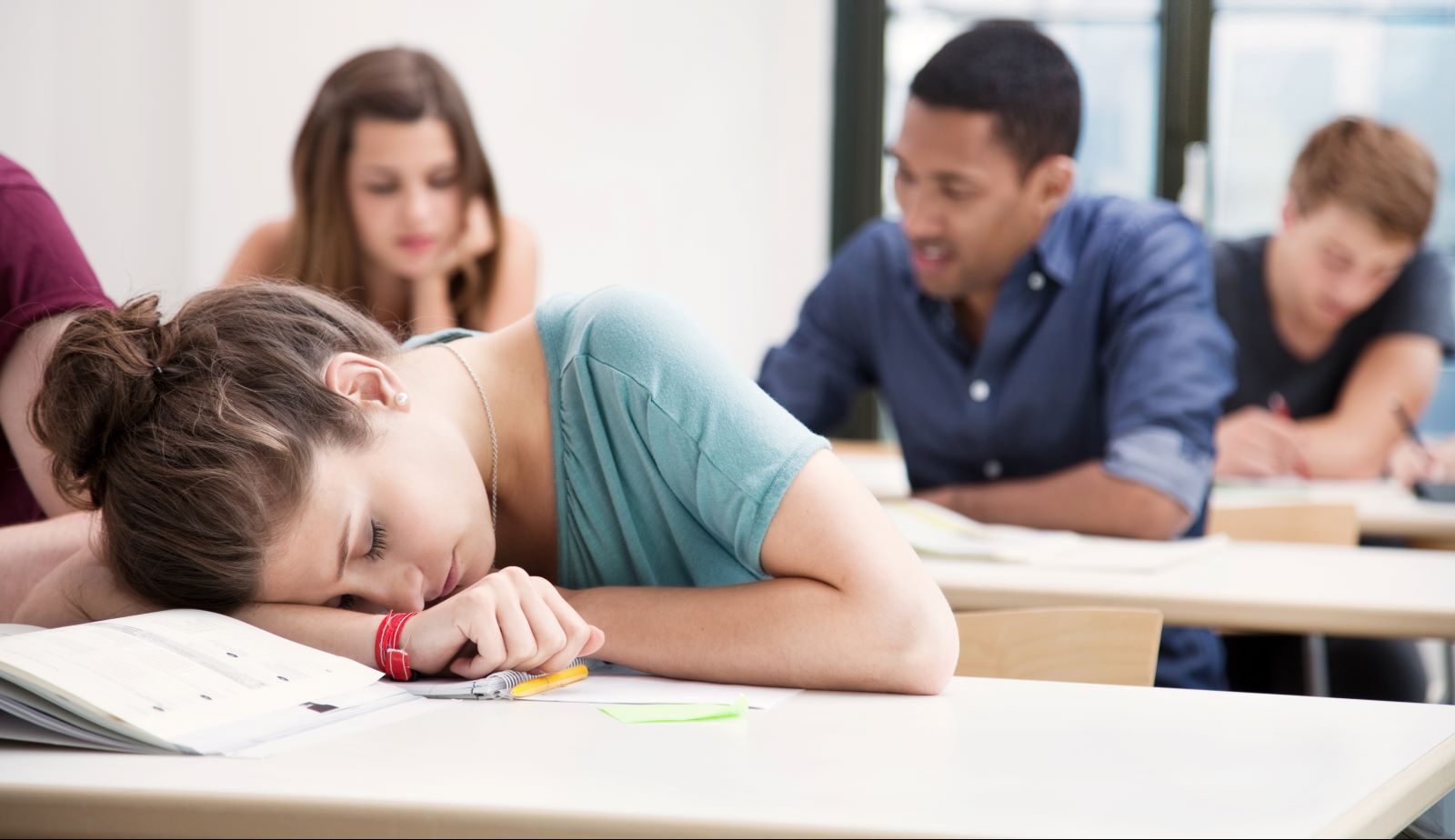It’s 6 a.m. and dark when buzzing alarms nudge high school students awake to prepare for school – but is that too early?
The correct answer is yes, according to debate after California ordered middle and high schools start times rolled back to at least 8:30 a.m., and a summer publication by several Hartford HealthCare researchers.
> Connect with the Behavioral Health Network
The research, published in the Journal of Clinical Sleep Medicine, also hints at other contributing factors to student success, entitled “Delayed high school start times and graduation rates and attendance over four years: The impact of race and socioeconomics.”
“We wanted to see if delaying high school start times to 8:30 or later would improve high school attendance and graduation rates,” said Pamela McKeever, EdD, one of the study leads and an educational administrator of the Grace S. Webb School, part of the Hartford HealthCare Behavioral Health Network. “We gathered data over five years and also looked at student socioeconomic status and race to see if that also made a difference.”
> Want more health news? Text StartHere to 85209 to sign up for text alerts
Probing records from 28 schools undergoing a start time change between 1999 and 2017, the team – which also included Ralph Dodd, PsyD, regional director of collegiate counseling for Hartford HealthCare’s CampusCare program, and David O’Sullivan, PhD, with the Hartford HealthCare Research Program – noted the delayed start led to:
- A 10% increase in graduation rate, from 80 to 90%
- A 3% improvement in attendance, from 90 to 93%
- A 7.44% increase in graduation rate for economically disadvantaged students, from 73 to 80.44%
“These numbers trickled into the entire student population over a few years, with white students improving in year two, three and four after the delay was instituted,” Dr. McKeever said. “African-American and economically disadvantaged students showed significant change after year four. This is why we believe that, when possible, researchers should try to include demographic information in their studies.”
Changing the start time for middle and high school is a “cost-effective” way to have a positive impact on student performance, she said. While 70% of young children and 65% of adults report getting enough sleep, only 15% of high school students do. The average teen sleeps six and a half hours a night, when they ideally need nine. One in five teens sleeps five or less hours a night.
The American Academy of Pediatrics actually declared teen sleep deprivation a public health issue. With the Centers for Disease Control and Prevention (CDC), the group opposes early morning school starts.
Dr. McKeever’s earlier research demonstrated that inadequate sleep is also associated with negative mental health outcomes among teens, something delayed high school start times should also improve.
“Teenagers today are the most sleep-deprived in history,” Dr. McKeever said. “Early start times resulted in more adverse outcomes such as an increase in depressive symptoms and suicidal ideation.”



